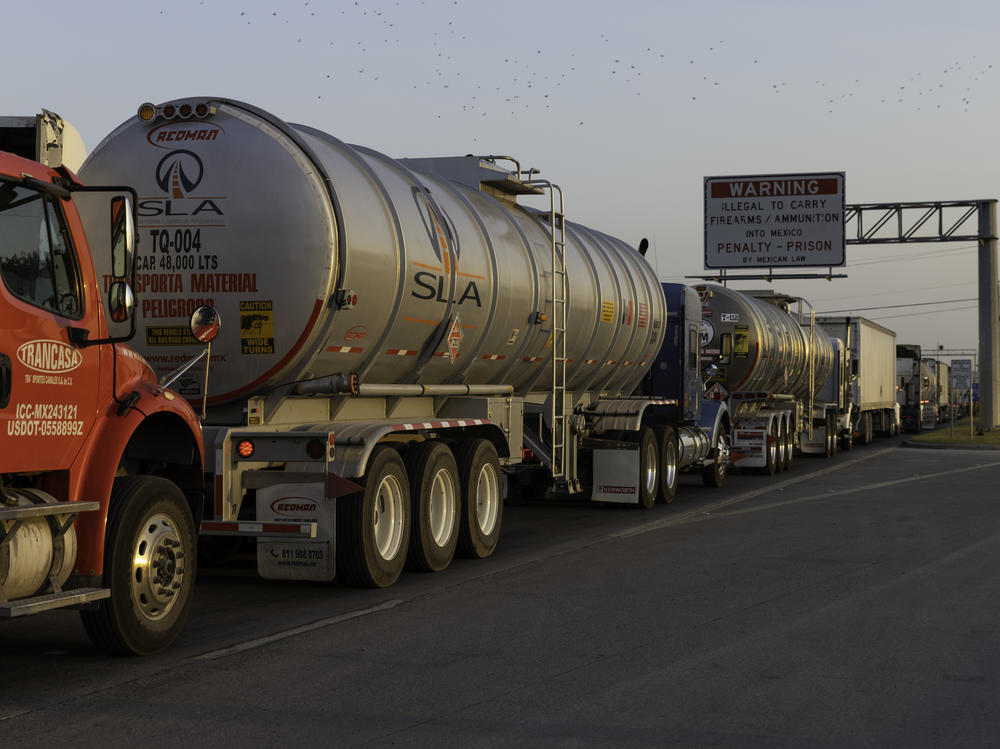Section Branding
Header Content
A key Texas bridge lost $1 billion per week during governor's slowdown
Primary Content
Texas Gov. Greg Abbott's order imposing safety inspections on trucks crossing the border from Mexico inflicted billions of dollars in U.S. trade losses — including $1 billion per week at the Pharr-Reynosa International Bridge alone, according to the latest tallies of the slowdown's economic fallout.
A massive line of northbound trucks was seen waiting to enter the bridge's import lot last week. Abbott issued the order on April 6 and rescinded it on April 15.
The Pharr-Reynosa bridge in Hidalgo County lost an estimated $202 million per day while the policy was in force, with average border wait times rising to 10-12 hours, the city of Pharr said in a video release about the additional inspections. It's one of more than two dozen international bridges and border crossings in Texas.
The inspections by the state's Department of Public Safety resulted in "zero apprehensions" but vastly increased wait times at the border, Texas Public Radio reports. The delays, which sometimes stretched beyond 24 hours, forced companies to scramble to refuel diesel trucks that sat idling on the road, hoping to ensure produce and other goods remained refrigerated.
Abbott had touted his April 6 order as a crackdown on drug smuggling and human trafficking. But Texas Agriculture Commissioner Sid Miller, who like Abbott is a Republican, says the inspections did "nothing to stop the flow of illegal immigration or illegal drugs. I mean, absolutely zero."
That's because Abbott's inspections looked only at basic vehicle safety, such as the trucks' tires and brakes and lights — not their contents, Miller told NPR's Morning Edition.
"The governor's people have no authority to open the trucks," Miller said. Instead, he said, every truck undergoes inspections by federal and state agricultural agencies, as well as Customs and Border Protection. Those inspectors use X-ray machines, drug-sniffing dogs and other measures to ensure the cargo is legitimate, Miller added.
The border inspections' final political tally remains unknown — but in recent days, their stark economic costs have come into focus.
"The Perryman Group, an economic research and analysis firm based in Waco, estimated that total losses to the state were $470 million per day in what trade groups called 'a supply chain crisis,' " TPR reports.
The slowdowns at Texas' busy entry points has caused food prices to rise, Miller said.
"You're already seeing things like bananas, avocados, lemons and limes" going up in price, he said, adding that the border crisis has been compounded by a shipping crisis.
Abbott's order drew broad criticism on both sides of the border; many accused him of using the inspections as an attention-getting stunt for his reelection campaign. He lifted the order after the leaders of Mexican states across the border signed agreements that Abbott says will bolster border security. But as TPR notes, some of those stipulations were already in place before the inspections.
Copyright 2022 NPR. To see more, visit https://www.npr.org.

